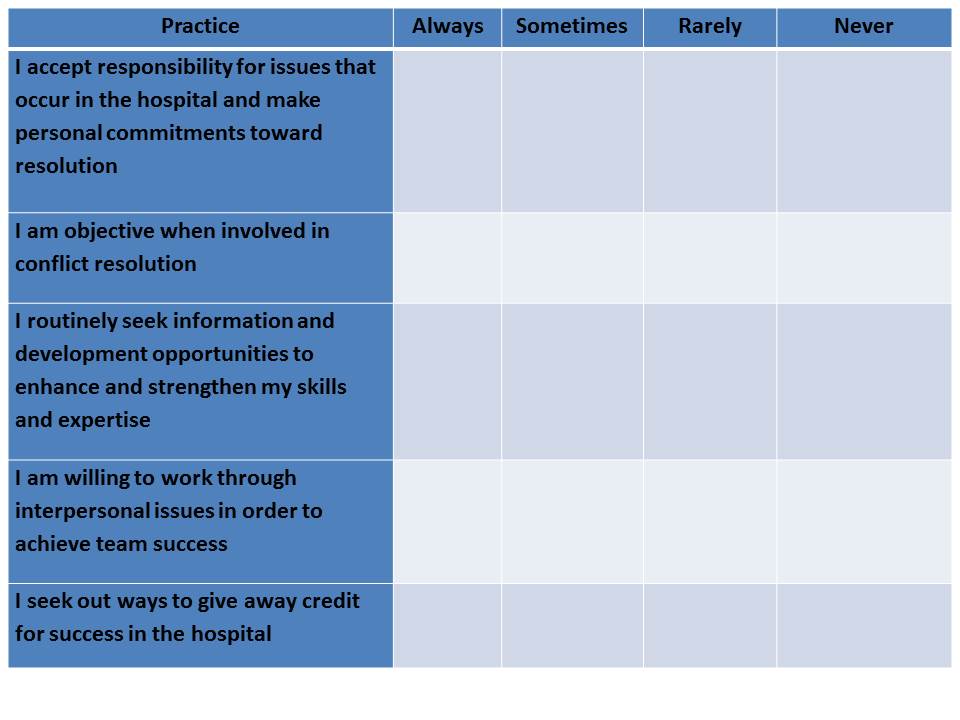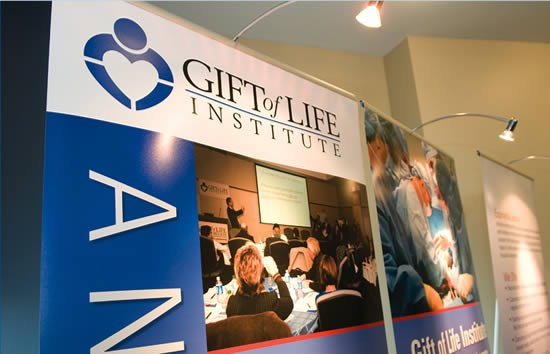The Principles of Effective Leadership
How your leadership style impacts hospital development.
Historically, the language used in family conversations about organ and tissue donation has been thoroughly analyzed. After all, the way this conversation unfolds greatly impacts a family’s willingness to say “yes” to donation. On the other hand, the language used by OPO Hospital Development (HD) staff to lead and inspire our healthcare partners and influence changes in practice has not received the same analysis or attention.
HD Coordinators typically possess excellent written and verbal skills, an ability to cultivate and nurture effective relationships, and a knack for aligning those relationships with hospital systems to implement strategic initiatives that will optimize a hospital’s donation outcomes. All of this takes leadership.
Stephen Covey, best known for the book ‘Seven Habits of Highly Effective People’, suggests a leadership style that fits the work of HD perfectly: Principle-Centered Leadership.
But before we explore this leadership style, let’s take a look at two commonly utilized models, coercive power and utility power.
Coercive and utility power

Coercive power is largely based on fear and intimidation. The changes effected by leadership rely on the use of power and status, and often result in someone doing something out of fear. The follower may be left feeling leveraged and certainly uninspired. The follower “goes along to get along.”
Utility power is based on fairness and equity, and constitutes most working relationships. Leadership relies on fairness in an exchange between two parties, each of whom has something of value to the other. The changes effected in this model are based on someone doing something because it’s worth their while. It’s based on an exchange of support: “I support your issue, you support mine.”
Principle-centered leadership
Principle-centered leadership is about inspiring others to buy in and support a greater purpose and is based on mutual respect and trust. We all know that trust is fragile and takes a long time to develop. Many of us in the OPO community feel time is the enemy, especially for those we serve; transplant candidates on a waiting list. Time is also the enemy of HD Coordinators because the donation process must go right every time, all of the time, and the sooner a HD Coordinator can influence a more optimal process, the more likely it will go well the next time. It’s our job to fix broken or compromised processes and conduct immediate case follow up.
The major benefit of implementing a principle-centered leadership approach is that individuals perceive their leaders as honorable. Trust is established, and there’s a sense of feeling inspired. One’s ability to influence a better process and outcome must be connected to a larger purpose, and done so in an honorable and inspirational way.
When working with hospital partners, we must not only seek their input but, even more important, we must seek to educate ourselves and understand the reasons behind what they’re saying and how they’re feeling. Listening in an empathetic way can be an effective approach to strengthening relationships of trust and discovering more about the perspectives and feelings of our healthcare partners who care for critically ill patients and families. Failing to identify their perspectives or refusing to acknowledge them could have a detrimental and long-term impact on relationships, the process, and outcomes.
What’s your style?
Take a minute and evaluate your own leadership style by considering the following statements:

If you answered “Rarely” or “Never” to any of these statements, maybe it’s time to consider a different approach to leadership. Make a commitment to continually ‘check-in’ on your style or approach, with a goal of improving your relationships, interactions, and outcomes. Partner with your manager, or a trusted member of your OPO, to help you grow and develop in your leadership style. Hold yourself personally accountable to fine-tune your ‘principle-centered leadership’ style.
Gweneth D. O’Shaughnessy is Vice President of Hospital Services at Gift of Life Donor Program in Philadelphia, PA


